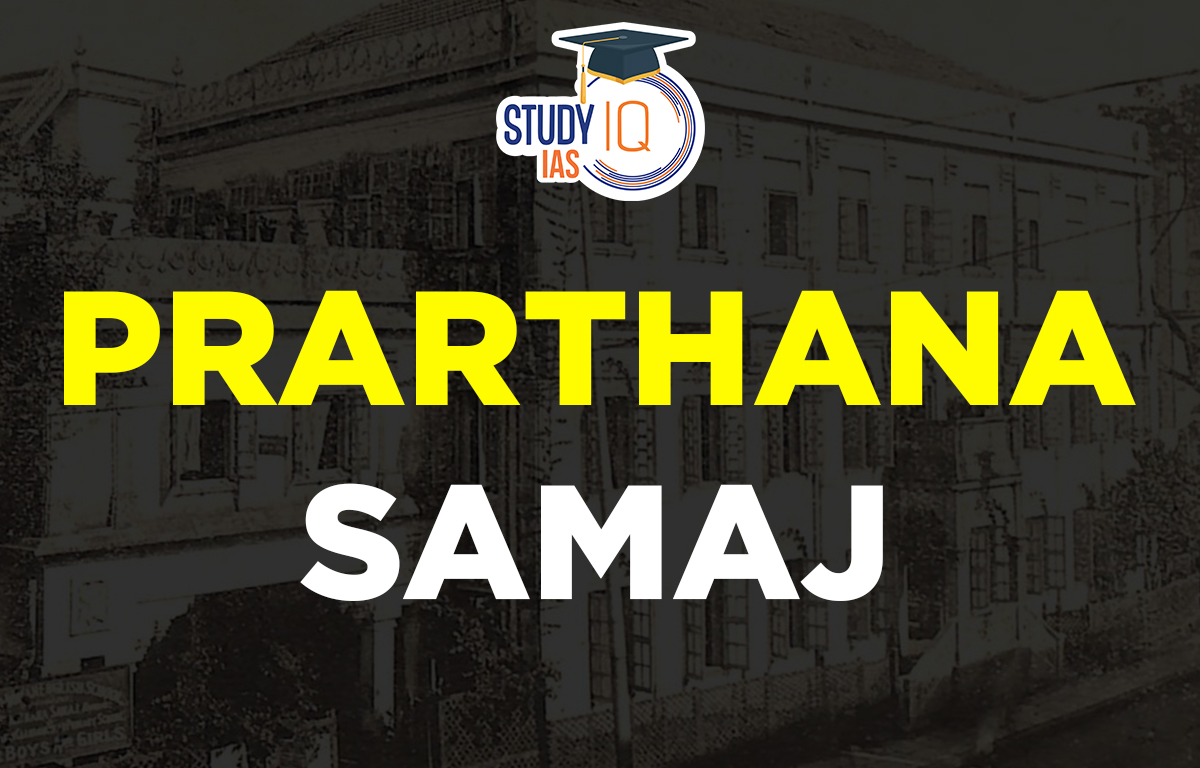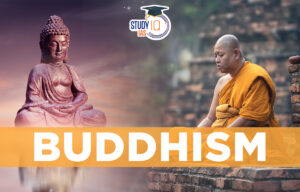Table of Contents
Prarthana Samaj, founded in the 19th century in India, is a significant socio-religious reform movement that aimed to promote social justice, education, and the overall welfare of society. The organization sought to eradicate social evils such as caste discrimination and superstitions while promoting rationalism and modern values. This article explores the history, principles, and objectives of Prarthana Samaj, providing a comprehensive understanding of its impact on Indian society.
Prarthana Samaj
Prarthana Samaj was a socio-religious reform movement founded in 1867 in Bombay (now Mumbai), intending to promote social equality, religious reforms, and rational thinking. It sought to eliminate the social evils plaguing Indian society, such as caste discrimination, superstitions, and rigid religious practices. Inspired by the Brahmo Samaj movement, it focused on modernizing Hinduism by emphasizing spirituality over rituals.
Prarthana Samaj Founder
The Prarthana Samaj was founded by Dr. Atmaram Pandurang in 1867. He was a social reformer and intellectual who, along with key figures like M.G. Ranade, R.G. Bhandarkar, and N.G. Chandavarkar, worked towards the upliftment of Indian society by advocating for rationalism, gender equality, and education.
Prarthana Samaj Objectives
The primary objectives of Prarthana Samaj were:
- Social Equality: Eradicating caste-based discrimination and promoting equality for all sections of society.
- Religious Reform: Encouraging a more spiritual and ethical approach to Hinduism, focusing on faith rather than rigid rituals and customs.
- Rationalism: Promoting rational thought and scientific temper to combat superstitions and regressive practices.
- Education: Supporting educational initiatives, especially for women and marginalized communities, to empower society.
- Universal Brotherhood: Advocating for harmony and mutual respect among people of all religions and communities.
Prarthana Samaj History
Origins of Prarthana Samaj
The Prarthana Samaj was established in 1867 in Mumbai (then Bombay) by prominent reformers like Dr. Atmaram Pandurang, M. S. Dattatraya, and R. G. Bhandarkar. It emerged as a response to the social injustices and rigidities of the caste system, which were prevalent in the Indian society of that era. Influenced by the ideas of the Brahmo Samaj and Western Enlightenment, the founders sought to create a platform for reforming Hindu society.
Key Figures
- Dr. Atmaram Pandurang: One of the key founders, he emphasized the importance of social reform and rational thought.
- M. S. Dattatraya: A key thinker in the organization, he played a vital role in shaping its objectives.
- R. G. Bhandarkar: A renowned historian and scholar, he contributed to the intellectual foundation of Prarthana Samaj.
Growth and Influence
The movement gained momentum during the late 19th and early 20th centuries, attracting many intellectuals, reformers, and social activists. It became a hub for progressive thought and activism, inspiring individuals like Bal Gangadhar Tilak, Mahatma Gandhi, and Vinoba Bhave. The organization also played a crucial role in the Indian Independence Movement, promoting national consciousness among the masses.
Read More: Brahmo Samaj
Prarthana Samaj Principles
Prarthana Samaj was built on several core principles aimed at reforming society and religion by encouraging rationalism, social justice, and spiritual development. The key principles of Prarthana Samaj include:
- Rational Approach to Religion: The movement advocated for a rational interpretation of religion, rejecting blind faith, superstitions, and unnecessary rituals. It focused on fostering a spiritual connection based on morality and ethical living.
- Social Equality: Prarthana Samaj emphasized the elimination of caste discrimination and promoted social equality for all, irrespective of their caste, creed, or gender.
- Religious Reform: Reforming Hinduism was a key principle, where the Samaj encouraged the simplification of religious practices, focusing on prayers and spirituality rather than orthodox rituals.
- Education for All: The movement believed in the importance of education, particularly for women and marginalized communities. It promoted education as a means to achieve social empowerment and intellectual progress.
- Opposition to Superstitions: Prarthana Samaj rejected superstitions and outdated beliefs, advocating for a scientific temper and critical thinking in addressing social issues.
- Universal Brotherhood: The organization promoted the idea of universal brotherhood, encouraging harmony and peaceful coexistence among people of different faiths and backgrounds.
Read about: Mahajanapadas
Prarthana Samaj Four Point Social Agenda
- Criticism of the caste system
- Female education
- Remarriage of Widows
- Increasing the marriage age for both men and women
Dhondo Keshav Karve and Vishnu Shastri were social reformers. Ranade and Karva founded the Widows’ Remarriage Movement and the Widows’ Home Association to give widows the knowledge and skills they need to support themselves.
Read More: Raja Ram Mohan Roy
Legacy and Impact of Prarthana Samaj
The Prarthana Samaj has left a profound impact on Indian society. Its emphasis on rationalism, social justice, and education contributed significantly to the progressive movements in India. The principles and objectives of the organization continue to resonate, inspiring contemporary social reformers and activists.
Educational Initiatives
Prarthana Samaj played a pivotal role in promoting education, particularly among women and marginalized communities. It established several schools and institutions, significantly contributing to literacy and educational empowerment.
Role in Indian Independence
The movement’s commitment to social justice and equality fostered a sense of nationalism, encouraging many to participate in the struggle for independence. The ideas propagated by Prarthana Samaj found expression in various social and political movements across India.
Prarthana Samaj UPSC
When Keshab Chandra Sen visited Maharashtra in 1867, Dr. Atmaram Pandurang established the Prarthana Samaj. R.G. Bhandarkar served as another Prarthana Samaj leader. Justice Mahadev Gobind Ranade joined this group in 1870, and he was largely responsible for the zeal and dedication of this society. It acquired an all-Indian flavour under Ranade. This article has all the details about Prarthana Samaj for UPSC Exam Preparations.
Read More: Dharma Sabha


 Jallianwala Bagh Massacre, Date, History...
Jallianwala Bagh Massacre, Date, History...
 Important Lakes of India, State wise and...
Important Lakes of India, State wise and...
 Buddhism History, Origin, Sect, Councils...
Buddhism History, Origin, Sect, Councils...





















